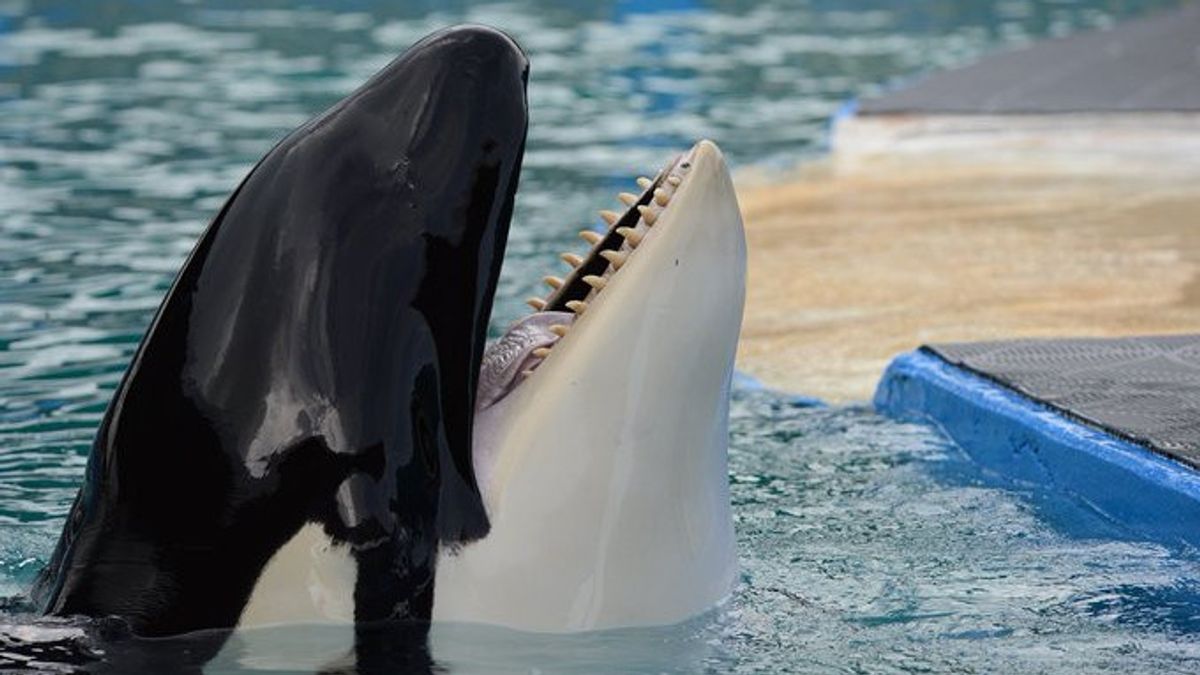JAKARTA - Miami Seaquarium, Florida, United States will end the show with an aging orca Lolita after half a century of confinement.
The 56-year-old killer whale is an icon in the City of Florida, garnering large crowds of visitors since he started performing at the aquarium in 1970.
Taken from her mother and seven siblings at the age of four, Lolita arrived at the Miami Seaquarium for just 5,500 euros. While many other animals died at the facility, Lolita has performed tirelessly since then, living in the smallest orca tank in the world.
For decades, celebrities such as Johnny Depp, Lindsay Lohan and Harrison Ford have campaigned to see the animal released. But, it was the inspection by the United States Department of Agriculture that finally put an end to his misery.
"Reports show that animals are suffering and dying in Seaquarium tanks due to the poor care they are receiving," said PETA Vice President & Deputy General Counsel Jared Goodman, according to Euro News March 23.
"So the tank closed around that time and looks like it's never going to open again."
Now, a struggle is underway to help Lolita live her final years in peace, away from the torments of captivity.
"PETA is now calling for this as the first step towards releasing Lolita into a beach sanctuary, before this long-suffering orca finally dies in the same cramped tank where she has been confined for more than half a century," Goodman added.
When contacted by Euronews Green, parent company Seaquarium failed to provide any information about the future of killer whales.
In their latest statement, the aquatic center claims Lolita is healthy and eating well despite her advanced age.
"As with any animal that has exceeded its anticipated life span, we will continue to monitor and care for it closely."
At 24 meters long and ten meters wide, the Lolita tank is only four times its size. He would need to circle it 600 times to cover the same distance as a wild whale in one day.
In their native waters, the Pacific Northwest, whales like Lolita can live as long as humans. While in the tank, that life expectancy was cut in half.
For now, the focus remains on releasing orcas from captivity and returning them to the wild, in the safest way possible.
"The initial focus should be on his health and well-being," said Pope Asylum Project Executive Director Charles Vinick.
"Everyone should focus on ensuring that we give him the highest quality of life he can have for the rest of his life."
The English, Chinese, Japanese, Arabic, and French versions are automatically generated by the AI. So there may still be inaccuracies in translating, please always see Indonesian as our main language. (system supported by DigitalSiber.id)












